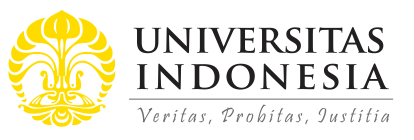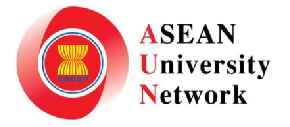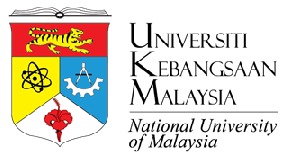
Abstract
This community engagement program aimed to improve the innovation of artpreneurs, a combination of artistic qualities with business sense in cultural sectors, overcoming the impact of the disruptive moment, such as the COVID-19 pandemic. This program used the Asset-Based Community Development method to explore the needs of the community. The exploration process used an appreciative inquiry approach to determine strengths, opportunities, aspirations, and results based on the inquiry from the community. This program was conducted in Ngestiharjo Village, Yogyakarta, Indonesia, as a part of the community service learning program Wiradesa conducted by the students and organized by Universitas Atma Jaya Yogyakarta. The participants were five artpreneurs who were members of the Ngestiharjo art community and own small and medium-sized enterprises. This community engagement program successfully defined the potential resources of the Ngestiharjo artpreneurs. The potential resources are intangible (network, cohesion, experiences, creativity, and quality) and tangible (venue and digital equipment) assets. These potential assets become an important element in developing a program using the Theory of Change (ToC). The results of this community engagement program are expressed in the ToC scheme which could be a guide for the members of the Ngestiharjo art community to improve their capacity to achieve their goals. Despite its limitations, this method of community development is replicable for communities with similar situations, striving toward innovations in maximizing arts and culture.
References
Afriza, E. S. D. (2021). Indonesian small medium enterprise (SME) can survive during COVID-19: Facts or illusions? International Journal of Business, Economics and Law, 24(2), 44–53. https://ijbel.com/previous-issues/april-june-and-august-2021/vol-24-april-2021-issue-2/
Alshanty, A. M., & Emeagwali, O. L. (2019). Market-sensing capability, knowledge creation and innovation: The moderating role of entrepreneurial-orientation. Journal of Innovation & Knowledge, 4(3), 171–178. https://doi.org/10.1016/j.jik.2019.02.002
Bates, B. R., Grijalva, D. A., Jacho, P. A., Barriga-Abril, C. X., & Grijalva, M. J. (2022). Participatory mural painting and identifying resources in asset based community development research: A case in rural Ecuador. Qualitative Research Reports in Communication, 23(1), 56–66. https://doi.org/10.1080/17459435.2021.1940253
Clements, D., Morgan, K., & Harris, K. (2020). Adopting an appreciative inquiry approach topropose change within a national talent development system. Sport, Education and Society, 27(3), 286–299. https://doi.org/10.1080/13573322.2020.1824903
Collinson, B., & Best, D. (2019). Promoting recovery from substance misuse through engagement with community assets: Asset based community engagement. Substance Abuse: Research and Treatment, 13, 1–14. https://doi.org/10.1177/1178221819876575
Cooperrider, D. L., Whitney, D., & Stavros, J. M. (2008). Appreciative inquiry handbook for leaders of change (Vol. 2). Crown Custom Publishing Inc.
Cowling, M., Brown, R., & Rocha, A. (2020). Did you save some cash for a rainy COVID-19 day? The crisis and SMEs. International Small Business Journal: Researching Enterpreneurship, 38(7), 593–604. https://doi.org/10.1177/0266242620945102
Cuerva, M. C., Triguero-Cano, Á., & Córcoles, D. (2014). Drivers of green and non- green innovation: empirical evidence in low-tech SMEs. Journal of Cleaner Production, 68, 104–113. https://doi.org/10.1016/j.jclepro.2013.10.049
De Massis, A., Audretsch, D., Uhlaner, L., & Kammerlander, N. (2018). Innovation with limited resources: Management lessons from the German Mittelstand. Journal of Product Innovation Management, 35(1), 125–146. https://doi.org/10.1111/jpim.12373
Efendi, S., Sugiono, E., Guritno, E., Sufyati & Hendryadi. (2020). Building innovation and competitiveness for low technology manufacturing SMEs through imitating capability and learning: The case of Indonesia. Cogent Social Sciences, 6(1), 1–14. https://doi.org/10.1080/23311886.2020.1803515
Finegold, M. A., Holland, B. M., & Lingham, T. (2002). Appreciative inquiry and public dialogue: An approach to community change. Public Organization Review, 2, 235–252. https://doi.org/10.1023/A:1020292413486
Fitrianto, A. R., Amaliyah, E. R., Safitri, S., Setyawan, D., & Arinda, M. K. (2020). Pendampingan dan sosialisasi pada usaha toko kelontong dengan metode ABCD (Asset Based Community Development) sebagai upaya pemberdayaan ekonomi dan peningkatan literasi usaha toko kelontong. Jurnal Abdidas, 1(6), 579–591. https://doi.org/10.31004/abdidas.v1i6.120
Harrison, R., Blickem, C., Lamb, J., Kirk, S., & Vassilev, I. (2019). Asset-based community development: Narratives, practice, and conditions of possibility—A qualitative study with community practitioners. SAGE Open, 9(1). https://doi.org/10.1177/2158244018823081
Hessin, A. F. (2018). A working guide to the asset based community development approach in Egypt. IAFOR Journal of Psychology & the Behavioral Sciences, 4(2), 15–32. https://doi.org/10.22492/ijpbs.4.1.02
Hossain, M. Z., & Rahman, M. M. (2020). Climate change vulnerability and resilience of urban poor in Khulna, Bangladesh: The role of asset-based community development approach. International Journal of Urban Sustainable Development, 13(2), 131–147. https://doi.org/10.1080/19463138.2020.1828891
Llach, J., & Nordqvist, M. (2010). Innovation in family and non-family businesses: A resource perspective. International Journal Entrepreneurial Venturing, 2(3/4), 381–399. https://ideas.repec.org/a/ids/ijeven/v2y2010i3-4p381-399.html
Lutfi, M., Buntuang, P. C. D., Kornelius, Y., Erdiyansyah, & Hasanuddin, B. (2020). The impact of social distancing policy on small and medium-sized enterprises (SMEs) in Indonesia. Problems and Perspectives in Management, 18(3), 492– 503. https://doi.org/10.21511/ppm.18(3).2020.40
Maclure, L. (2022). Augmentations to the asset-based community development model to target power systems. Community Development, 18, 4–17. https://doi.org/10.1080/15575330.2021.2021964
Mathie, A., & Cunningham, G. (2003). From clients to citizens: Asset-based community development as a strategy for community-driven development. Development in Practice, 13(5), 474–486. https://doi.org/10.1080/0961452032000125857
McIntyre, P., Fulton, J., Kerrigan, S., & Meany, M. (2023). Introduction to entrepreneurship in the creative industries. In P. McIntyre, J. Fulton, S. Kerrigan, & M. Meany (Eds.), Entrepreneurship in the creative industries: How innovative agents, skills and networks interact (pp. 3–19). Springer International Publishing. https://doi.org/10.1007/978-3-031-19455-9_1
McKnight, J. L., & Russell, C. (2018). The four essential elements of an asset-based community development process: What is distinctive about an asset- based community development process? (Vol. 1). Asset-Based Community Development Institute at DePaul University.
Morgan, K., Bryant,A. S., & Edwards, L. C. (2020).Appreciative inquiryasamethodological approach to collaboration between different sporting organisations in Wales to promote physical literacy. Sport Education and Society, 27(1), 27–40. https://doi.org/10.1080/13573322.2020.1822311
Nel, H. (2018). Community leadership: A comparison between asset-based community- led development (ABCD) and the traditional needs-based approach. Development Southern Africa, 35(6), 839–851. https://doi.org/10.1080/0376835x.2018.1502075
Pjs Bupati Bantul resmikan Kampung Tangguh Nusantara ‘Sigagah Projotamansari.’ (2020, December 1). Kabupaten Bantul. https://bantulkab.go.id/berita/detail/4412/pjs-bupati-bantul-resmikan-kampung-tangguh-nusantara--quot- sigagah-projotamansari-quot-.html
Popa, N., Pop, A. M., Marian-Potra, A. C., Cocean, P., Hognogi, G. G., & David, N. A. (2021). The impact of the COVID-19 pandemic on independent creative activities in two large cities in Romania. International Journal of Environmental Research and Public Health, 18(14), 1–15. https://doi.org/10.3390/ijerph18147674
Prihatiningtias, Y. W., & Wardhani, M. R. (2021). Understanding the effect of sustained use of cloud-based point of sales on SMEs performance during covid-19 pandemic. The Indonesian Accounting Review, 11(1), 33–46. https://doi.org/10.14414/tiar.v11i1.2300
Priyono, A., Moin, A., & Putri, V. N. A. O. (2020). Identifying digital transformation paths in the business model of SMEs during the COVID-19 pandemic. Journal of Open Innovation: Technology, Market, and Complexity, 6(4). 1–22. https://doi.org/10.3390/joitmc6040104
Purwati, A. A., Budiyanto, B., Suhermin, S., & Hamzah, M. L. (2021). The effect of innovation capability on business performance: The role of social capital and entrepreneurial leadership on SMEs in Indonesia. Accounting, 323–330. https://doi.org/10.5267/j.ac.2020.11.021
Rakotoarison, Z., Dietrich, S., & Hiilamo, H. (2019). Tackling poverty with local assets: A case study on congregational asset-based community development in a Lutheran church in Madagascar. Diaconia, 10, 119–140. https://doi.org/10.13109/diac.2019.10.2.119
Reinholz, D. L., & Andrews, T. C. (2020). Change theory and theory of change: what’s the difference anyway? International Journal of STEM Education, 7(2), 1–12. https://doi.org/10.1186/s40594-020-0202-3
Taneja, S., Pryor, M. G., & Hayek, M. (2016). Leaping innovation barriers to small business longevity. Journal of Business Strategy, 37(3), 44–51. https://doi.org/10.1108/jbs-12-2014-0145
Vecco, M. (2019). The “artpreneur”: Between traditional and cultural entrepreneurship. A historical perspective. In W. Byrnes & A. Brkić (Eds.), The Routledge companion to arts management. Routledge.
Webber, S., Butteris, S. M., Houser, L., Coller, K., & Coller, R. J. (2018). Asset-based community development as a strategy for developing local global health curricula. Academic Pediatrics, 18(5), 496–501. https://doi.org/10.1016/j.acap.2018.02.001
White, H. (2018). Theory-based systematic reviews. Journal of Development Effectiveness, 10(1), 17–38. https://doi.org/10.1080/19439342.2018.1439078
Wibowo, S. F., Ahmad, G. N., & Fauzi, A. (2019). Does green innovation matter? A study on Indonesia’s SMEs. Jurnal Manajemen, 23(1), 101–116. https://doi.org/10.24912/jm.v23i1.447
Recommended Citation
Kusuma, Gabriella Hanny; Kurniawati, Anggreni Dian; Junaedi, Sheellyana M. F.; and Widiastuti, Theresia Diah
(2023).
The Artpreneurship: Innovate to Overcome the Challenge.
ASEAN Journal of Community Engagement, 7(2), 226-240.
Available at: https://doi.org/10.7454/ajce.v7i2.1174







